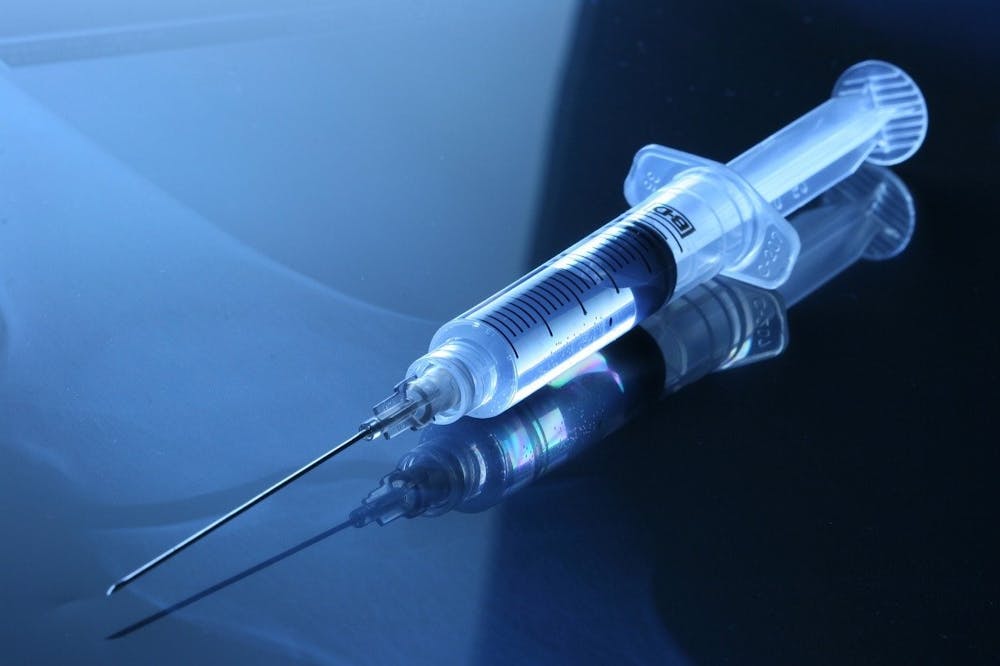On the wintry morning of his inauguration, President Joe Biden sought to comfort a weary nation. “As the Bible says,” he told us, “weeping may endure for a night, but joy cometh in the morning.”
While night has not ended, and morning has not arrived, many feel hope again. The vaccine is no longer a question of if, but of when. When will the next vaccine be approved? When will more doses arrive to my state? When will my turn come?
Yet these are particularly American questions. For many outside of the United States, the long night will be even longer still. While much of the world scrambles to acquire vaccines, Princeton University students reside on a major testing and vaccine distribution site. It is a privilege worth examining and remembering for the rest of our lives.
We are inundated with the statistics every day. Globally, millions have been infected, millions have died, and the numbers keep growing. Yet from California to New York, COVID-19 restrictions are easing. Students are returning to schools, patrons to restaurants, and employees to work.
There is a sense of inevitability in the air. No matter how sound or unsound these policies are, normalcy is within our grasp. It is the belief that America, by sheer force of power and will, can accomplish the unthinkable. It is the President’s promise to “move heaven and earth” to address the COVID-19 crisis, and it is his ambitious goal to vaccinate millions of people a day.
This American exceptionalism evokes the image of our mighty industrialism defeating the Axis, of our rockets reaching the moon, and of our vaccines eradicating smallpox. Yet in pursuing such a heroic narrative, the United States once again leaves the rest of the world in a familiar position: left behind.
“At present,” the director-general of the World Health Organization (WHO) writes, “rich countries with just 16 percent of the world’s population have bought up 60 percent of the world’s vaccine supply.” As of last week, the European Union has ordered 1.6 billion doses for its 448 million people. The United States has ordered 1.2 billion doses for its 330 million people. Both will probably order more.
Meanwhile, countries throughout Latin America, Africa, and Asia are struggling to acquire enough vaccines to even begin looking at a return to normalcy. In Peru, officials are fighting to vaccinate just 20 percent of their population. In South Africa and India, a proposal to the WHO meant to allow developing nations to manufacture their own vaccines has been blocked by other member states.

One wonders, “If joy cometh in the morning, when does morning come for everyone else?”
In trying to answer it, one faces dilemmas upon dilemmas. What do we owe one another, as fellow human beings? Why shouldn’t the United States prioritize its own citizens if it has the power to do so? Don’t we all, personally, have a part in ourselves that wants to be first in line for a vaccine? These questions have no single answer — but that does not mean we should not ask them. And, more than most, Princeton students should be grappling with them.
For those on campus, the fact that the University is both a testing site and vaccination site should be recognized as an incredible privilege. While the vast majority of the world struggles, Princeton students not only reside in a country with the infrastructure and capital to contain the pandemic, but on a campus with the capability to provide a veneer of normalcy.
Students eat together, walk together, and attend classes together. They are supported by a massive operation that tests thousands twice a week, and they are comforted by the understanding that when the vaccine is ready for them it will be a walk away from their dorms.

Currently, the state of New Jersey only offers vaccinations to Phase 1 groups, such as healthcare workers and high-risk individuals. Students will be eligible once Phase 2 begins.
Regardless of where Princeton students, faculty, and staff fall in the sequence of New Jersey’s vaccine distribution, they should expect to receive their vaccine sooner than most in the global community.
Why should it be this way? Why should it not? Regardless, Princeton students should remember this truth for the rest of their lives: in a global crisis of catastrophic proportions, they were among the most fortunate people in the world.
We must pay it forward. One hopes that in the future our classmates will use their positions throughout society to afford others some measure of the benefits we receive today. One hopes that if joy truly cometh in the morning, we might bring morning to more than just ourselves.
David Palomino is a junior in the politics department from Los Angeles, Calif. He can be reached at davidap@princeton.edu.
Editor’s Note: A previous version of this article suggested that “the University will have a supply of vaccines separate from the state’s.” New Jersey controls all distribution in the state. The piece has been edited for clarity.








